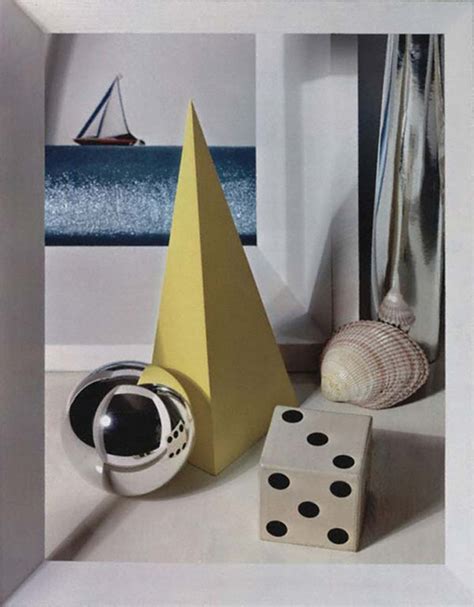A Quote by William O. Douglas
Man must be able to escape civilization if he is to survive. Some of his greatest needs are for refuges and retreats where he can recapture for a day or a week the primitive conditions of life.
Related Quotes
More and more, as civilization develops, we find the primitive to be essential to us. We root into the primitive as a tree roots into the earth. If we cut off the roots, we lose the sap without which we can't progress or even survive. I don't believe our civilization can continue very long out of contact with the primitive.
A soldier surrounded by enemies, if he is to cut his way out, needs to combine a strong desire for living with a strange carelessness about dying. He must not merely cling to life, for then he will be a coward, and will not escape. He must not merely wait for death, for then he will be a suicide, and will not escape. He must seek his life in a spirit of furious indifference to it; he must desire life like water and yet drink death like wine.
It is generally admitted that the cultural values (humanization) and the existing institutions and policies of society are rarely,if ever, in harmony. This opinion has found expression in the distinction between culture and civilization, according to which "culture" refers to some higher dimension of human autonomy and fulfillment, while "civilization" designates the realm of necessity, of socially necessary work and behavior, where man is not really himself and in his own element but is subject to heteronomy, to external conditions and needs.
The Scoutmaster guides the boy in the spirit of an older brother... He has simply to be a boy-man, that is: (1) He must have the boy spirit in him: and must be able to place himself in the right plane with his boys as a first step. (2) He must realise the needs, outlooks and desires of the different ages of boy life. (3) He must deal with the individual boy rather than with the mass. (4) He then needs to promote a corporate spirit among his individuals to gain the best results.
Man cannot survive except through his mind. He comes on earth unarmed. His brain is his only weapon. Animals obtain food by force. man had no claws, no fangs, no horns, no great strength of muscle. He must plant his food or hunt it. To plant, he needs a process of thought. To hunt, he needs weapons,and to make weapons - a process of thought. From this simplest necessity to the highest religious abstraction, from the wheel to the skyscraper, everything we are and we have comes from a single attribute of man -the function of his reasoning mind.
Death is not a blotting-out of existence, a final escape from life; nor is death the door to immortality. He who has fled his Self in earthly joys will not recapture It amidst the gossamer charms of an astral world. There he merely accumulates finer perceptions and more sensitive responses to the beautiful and the good, which are one. It is on the anvil of this gross earth that struggling man must hammer out the imperishable gold of spiritual identity.
There are moments in life when a man retreats defensively, when he must give ground, when he must surrender less important positions in order to protect the more important ones. But should it come to the very last, the most important one, at this point a man must halt and stand firm if he doesn't want to begin life all over again with idle hands and a feeling of being shipwrecked.
A man or a race either if he's any good can survive his past without even needing to escape from it and not because of the high quite often only too rhetorical rhetoric of humanity but for the simple indubitable practical reason of his future: that capacity to survive and absorb and endure and still be steadfast.
Art is life seen through man's inner craving for perfection and beauty--
his escape from the sordid realities of life into a world of his imagining. Art accounts for at least a third of our civilization,
and it is one of the artist's principal duties to do more than merely record life or nature.
To the artist is given the privilege of pointing the way and inspiring towards a better life.
































